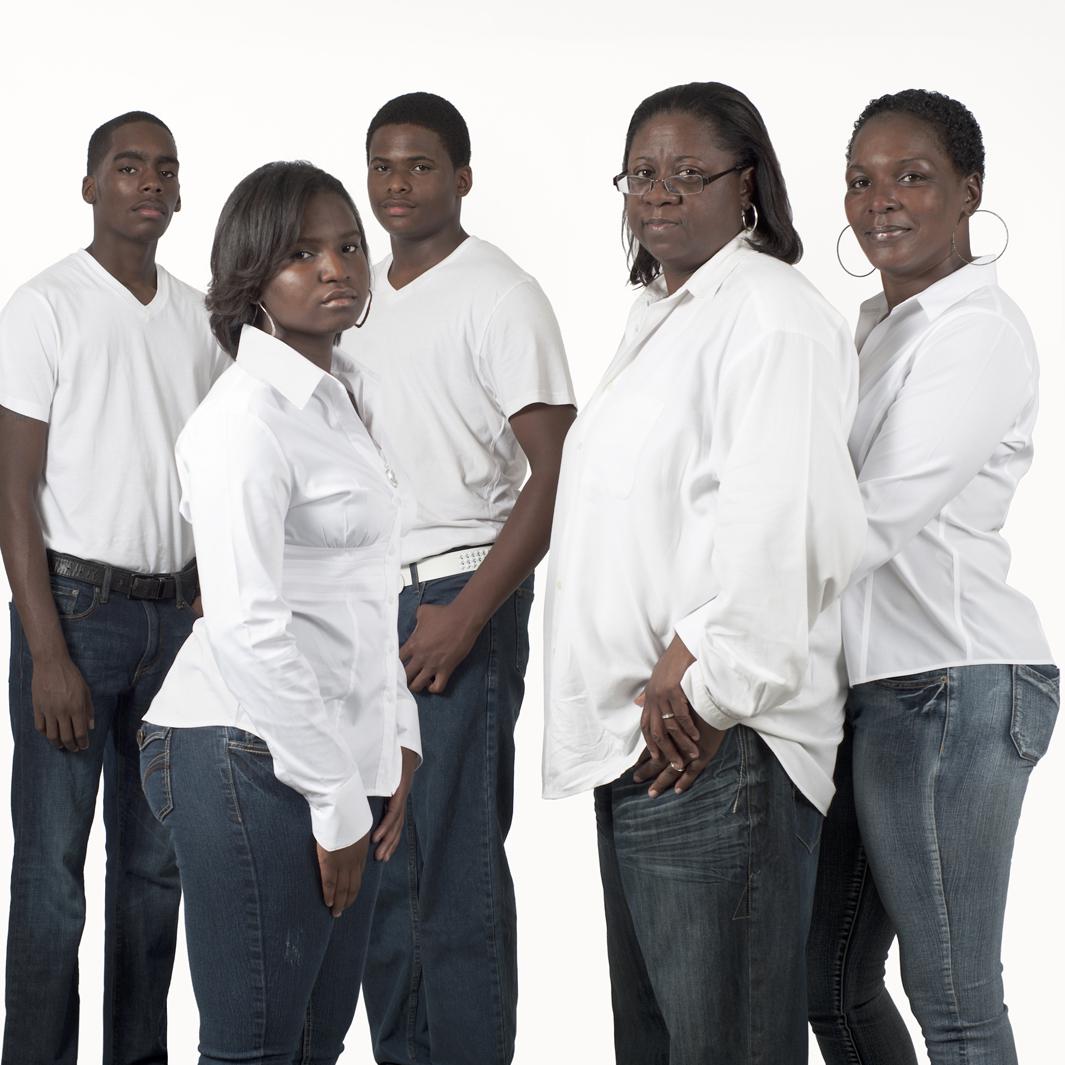When Carolyn L. Sherer started photographing lesbians and their families in Birmingham, Alabama, in 2011, many chose not to show their faces. They were scared, they said, of losing their jobs or being discriminated against in other ways. Other people she asked to participate in her series, “Living in Limbo,” refused to be photographed at all. But Sherer, who is a lesbian, was determined to make members of her community in Birmingham seem less invisible, in part because she hoped that letting others see them would help them become fully recognized and protected citizens.
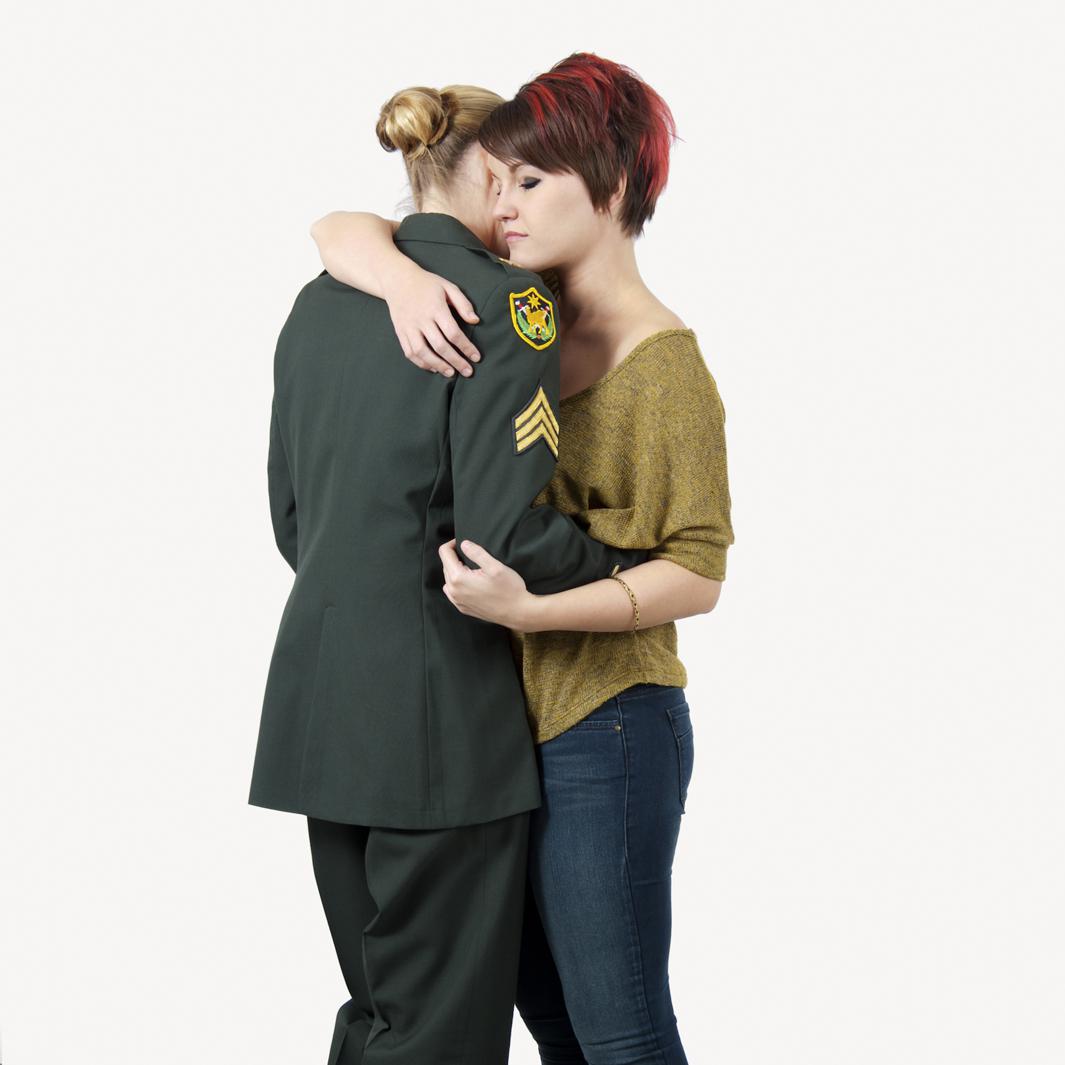
Carolyn L. Sherer
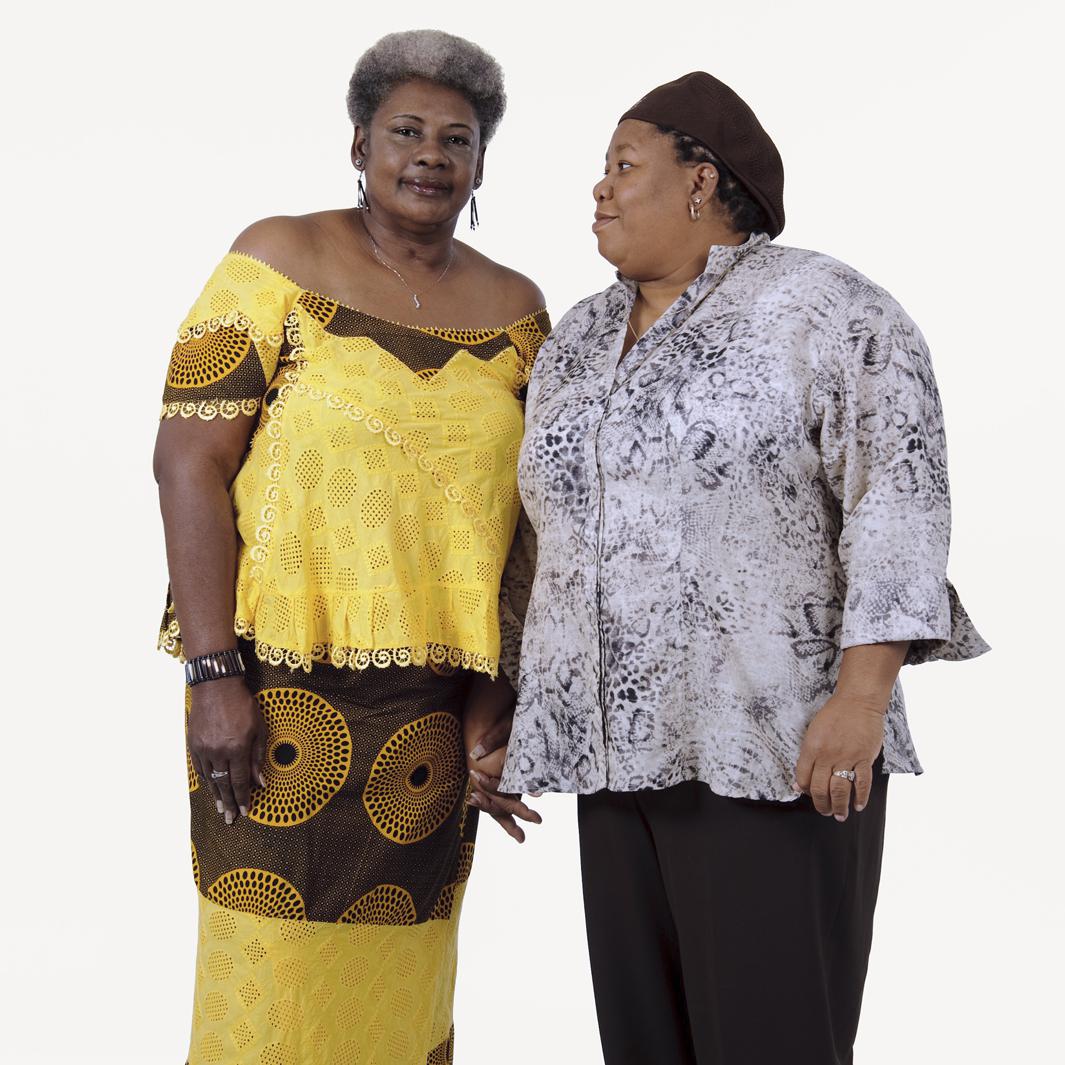
Carolyn L. Sherer
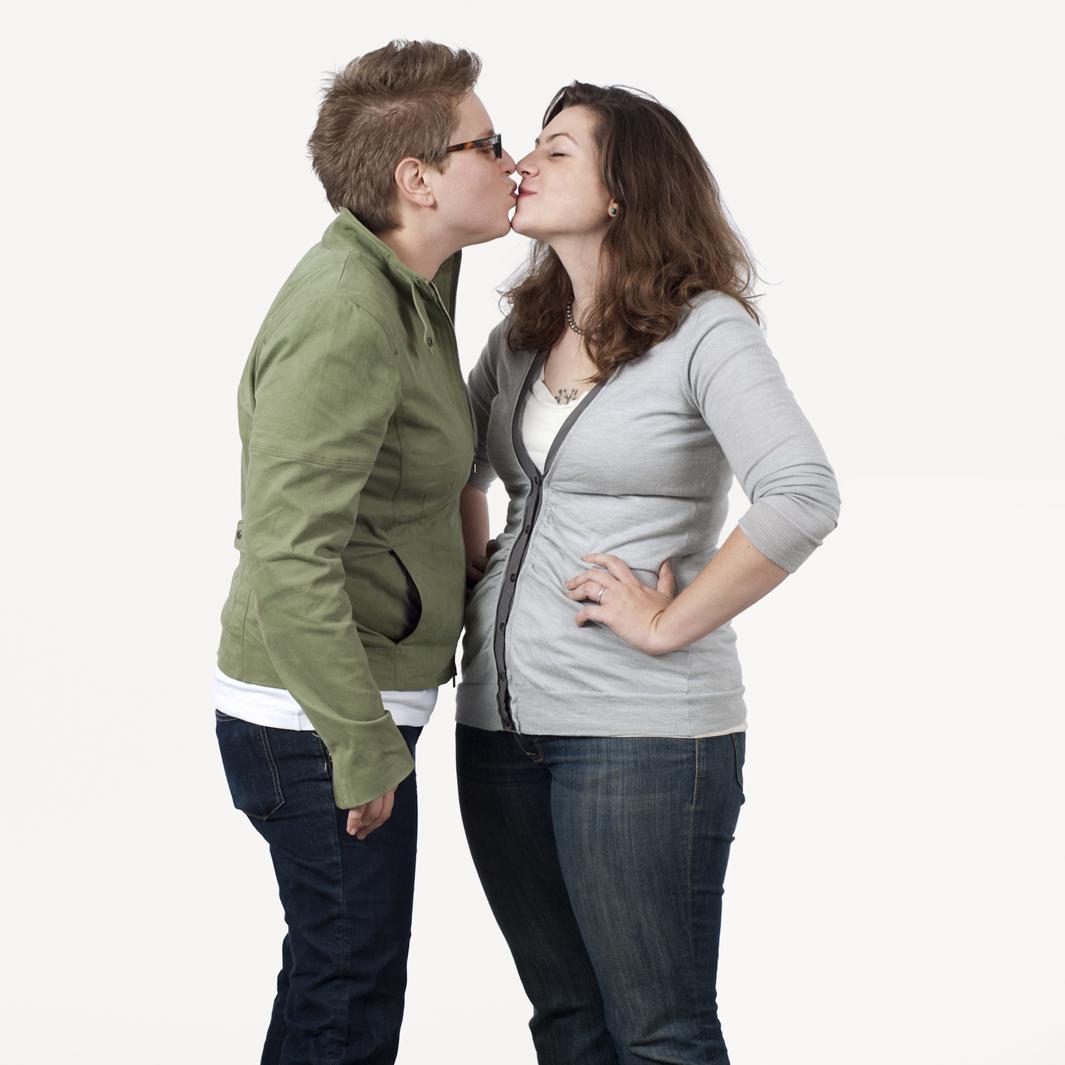
Carolyn L. Sherer
Sherer started by making portraits of a few people she knew that were most comfortable being photographed. Once the Civil Rights Institute endorsed the project, other organizations jumped on board, and, ultimately, interest grew so much that she had to start turning subjects away. She was looking to create a “mosaic” of the community, encompassing women with and without kids, as well as women representing different socioeconomic and racial backgrounds.
“My wife and I have been together since 1979 and it’s been very painful to me that my family hasn’t been acknowledged as a family unit. So that’s why I wanted to explore what a family is, what a family looks like. I wanted it to be about relationships and how people relate to each other in front of the camera,” she said.
Sherer invited participants to her studio, where they were free to choose their own outfits and their own poses. Using a handheld camera, Sherer moved about the space as her subjects interacted with one another and changed their positions; the shoots became “a sort of dance.”
“I asked the participants to consider their feelings about words. In sequence, they were, ‘lesbian,’ ‘pride,’ and ‘prejudice.’ I got a range of responses,” she said. “Many of the older women in the beginning cried when I said ‘prejudice,’ or even when I said ‘lesbian.’ They said they’d been afraid to use the word or talk about it. Young people were like, ‘Lesbian?! We’re queer.’ ”
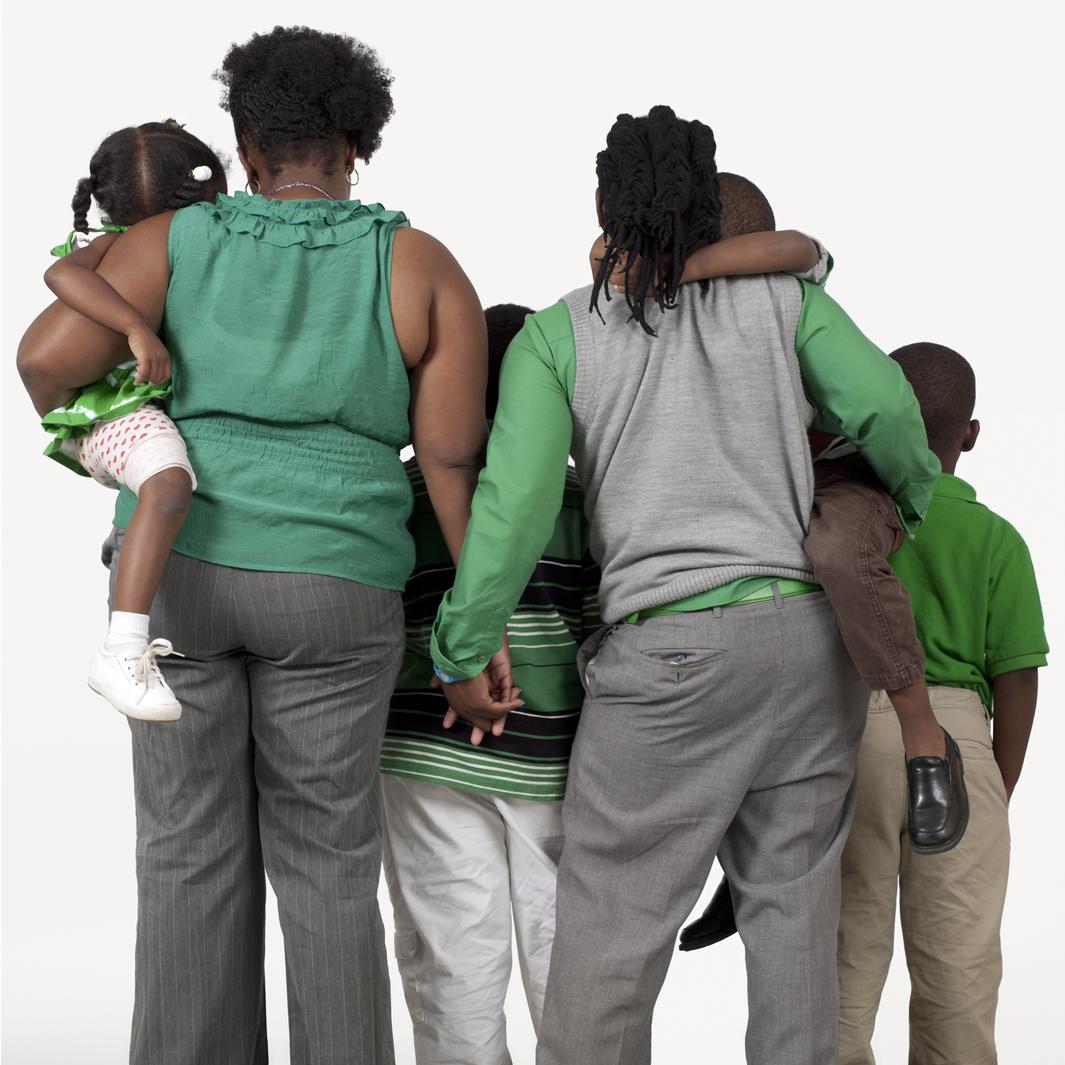
Carolyn L. Sherer
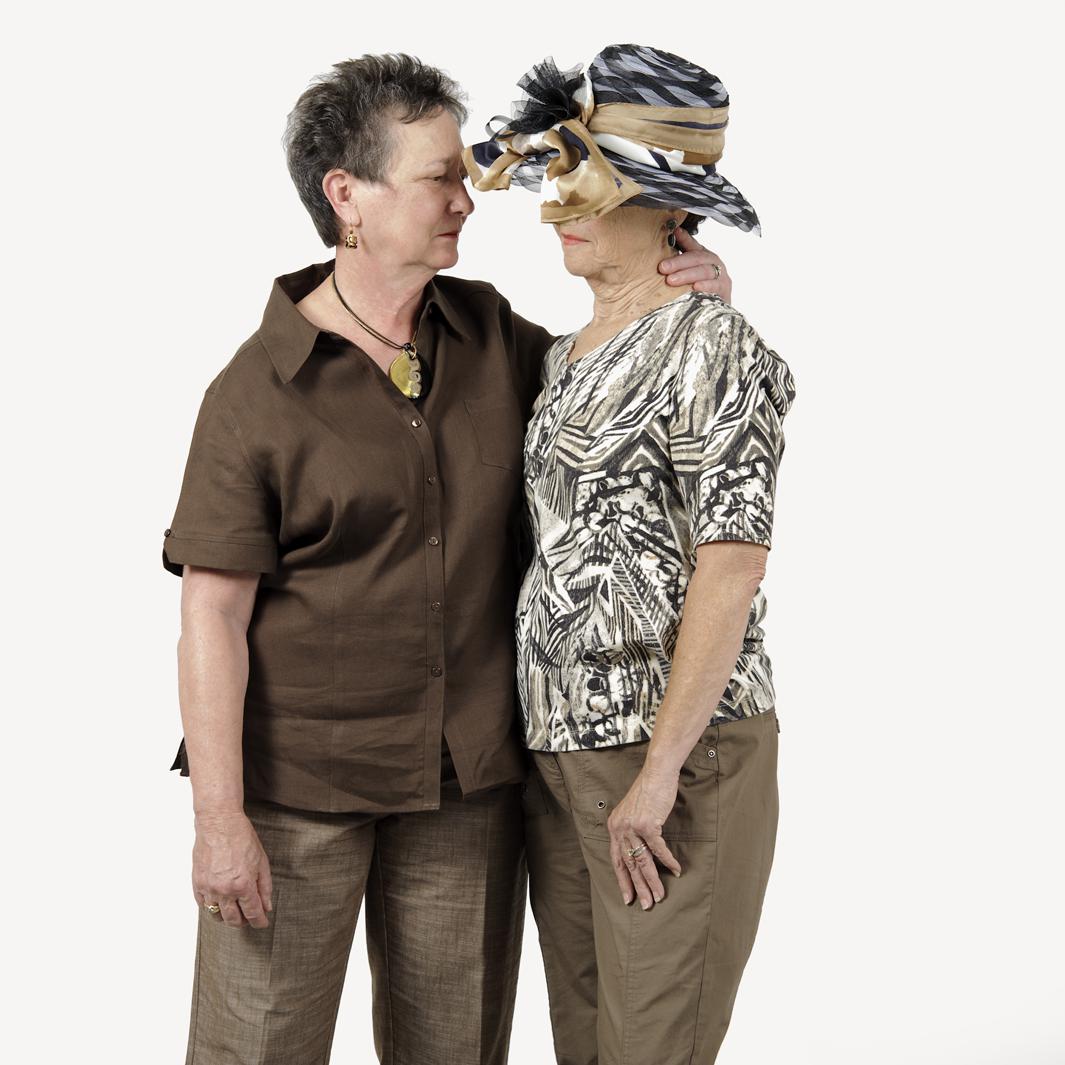
Carolyn L. Sherer
Conditions for gay Alabamans, in some respects, have improved since Sherer began her project. But in March, the Alabama Supreme Court upheld the gay marriage ban there, and the state still doesn’t have any laws on the books addressing discrimination or hate crimes against LGBTQ citizens. Sherer said there’s still a long way to go before LGBTQ families can feel fully safe and welcome in the state.
“It’s important for people to understand what’s going on,” she said. “People need to know we need to have protections.”
“Living In Limbo: Lesbian Families In the Deep South” will be on display at the Stonewall Museum’s Wilton Manors Gallery in Wilton Manors, Florida from April 29 to June 28.*
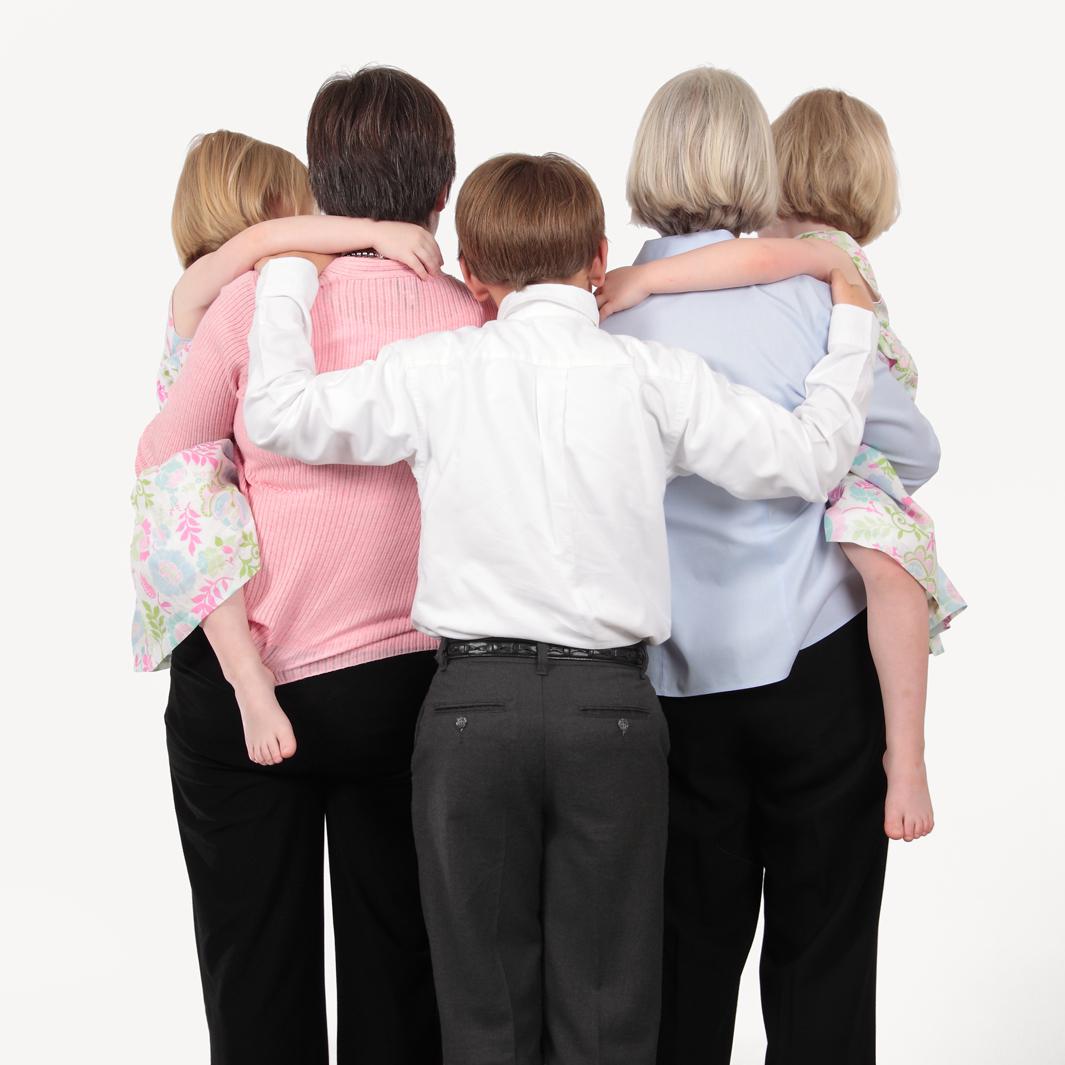
Carolyn L. Sherer
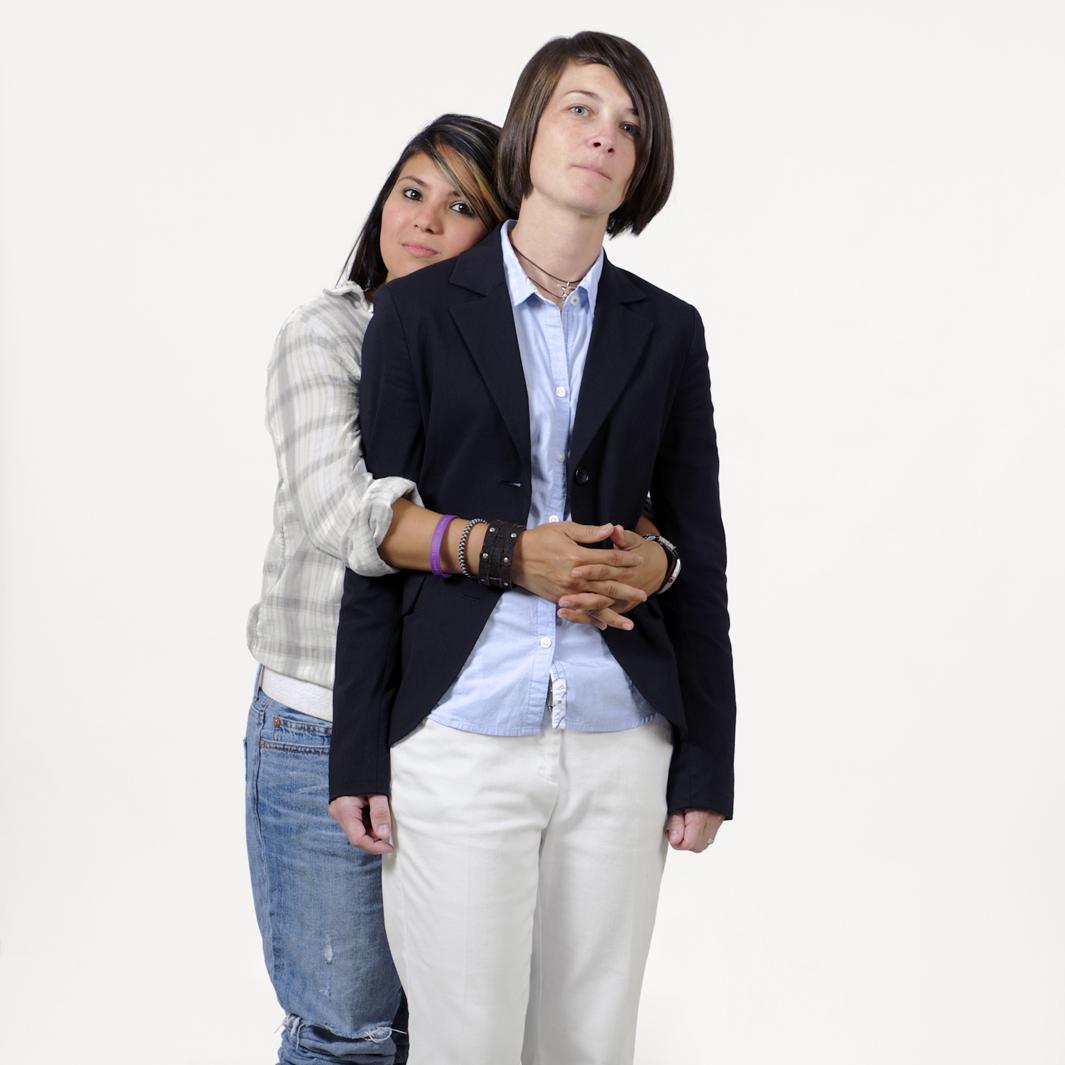
Carolyn L. Sherer
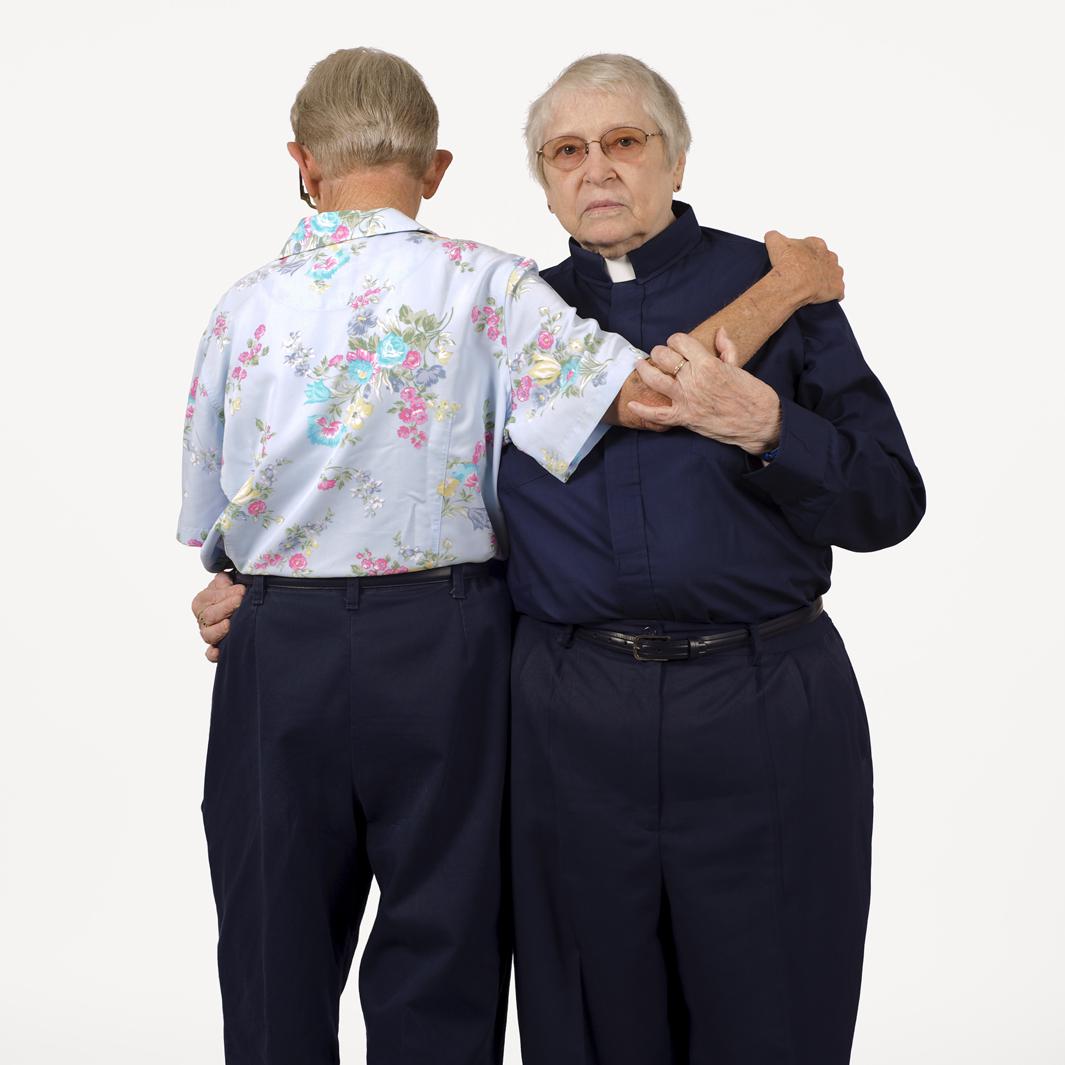
Carolyn L. Sherer
*Correction, May 5, 2015: This post originally misspelled the name of Wilton Manors Gallery. It also misidentified that the gallery is located in Fort Lauderdale. It’s located in Wilton Manors.
